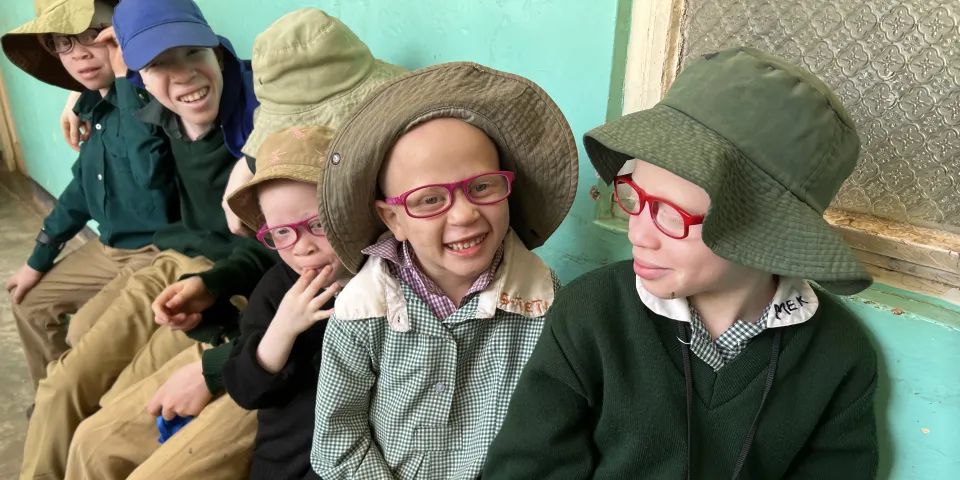SKYGEN

The SKYGEN International Foundation works in underserved parts of the world to improve healthcare using emerging technologies. In 2018 we launched our charter project to increase access to vision care in Tanzania, where there is just one optometrist for every 150,000 people and one ophthalmologist for every 1.25 million people. As we’ve worked to make vision care sustainable in the Arusha region, we became aware of an underserved group in particular we could help: Students with albinism.
High Incidence of Albinism in Tanzania
Albinism is a hereditary disorder in which the body makes little to no melanin, the term for a group of pigments that give color to skin and hair. People with albinism typically have very pale skin and light or white hair. Melanin is essential for eye development and function, so people with albinism often have severe vision problems, including near or complete blindness.
Though albinism is rare globally, in Tanzania the incidence is high – the highest in the world, in fact. About one in 1,400 Tanzanians have albinism, compared to one in 15,000 people worldwide. Prescription eyeglasses can help remedy the high instances of nearsightedness, farsightedness, extreme sensitivity to light, and the blurred vision of astigmatism in the population.
Melanin is essential for eye development and function, so people with albinism often have severe vision problems, including near or complete blindness.
Source: The Mayo Clinic
Our Mobile Eye Clinic Visits a Special School
Despite having given nearly 200,000 vision tests through mobile clinics at schools and in communities around the Arusha region, our team had not worked with many students with albinism until November 2022. That is because there is a social stigma surrounding albinism in the country. People with albinism are highly marginalized both socially and economically. They are also at high risk for becoming a victim of extreme violence and/or human trafficking. For these reasons children with albinism grow up in special boarding schools sponsored by the government for their education and safety.
During our November visit to the school, our team tested all 44 students and many of their teachers. All but one student needed glasses, and 28 required custom glasses due to their strong prescriptions, which we were able to provide through our partner Essilor.
“Visiting this school and helping all those kids, most with significant prescriptions, was incomparable,” says Lisa Sweeney, SKYGEN International Foundation Executive Director. “It is sad to think how long some of these children have gone without correction for their vision when the prescriptions are so strong. The kids were so happy – it was a great day, and we were lucky to be part of it. There are at least three more such schools we want to visit soon.”
The students we served are living with so many barriers to quality of life. We’re hopeful that access to vision care and much-improved sight will help them find their path to a happy and rich life.
Read more about the SKYGEN International Foundation’s initiative in Tanzania.
Latest Blog Posts
Learn how you can transform the delivery of health benefits with SKYGEN.